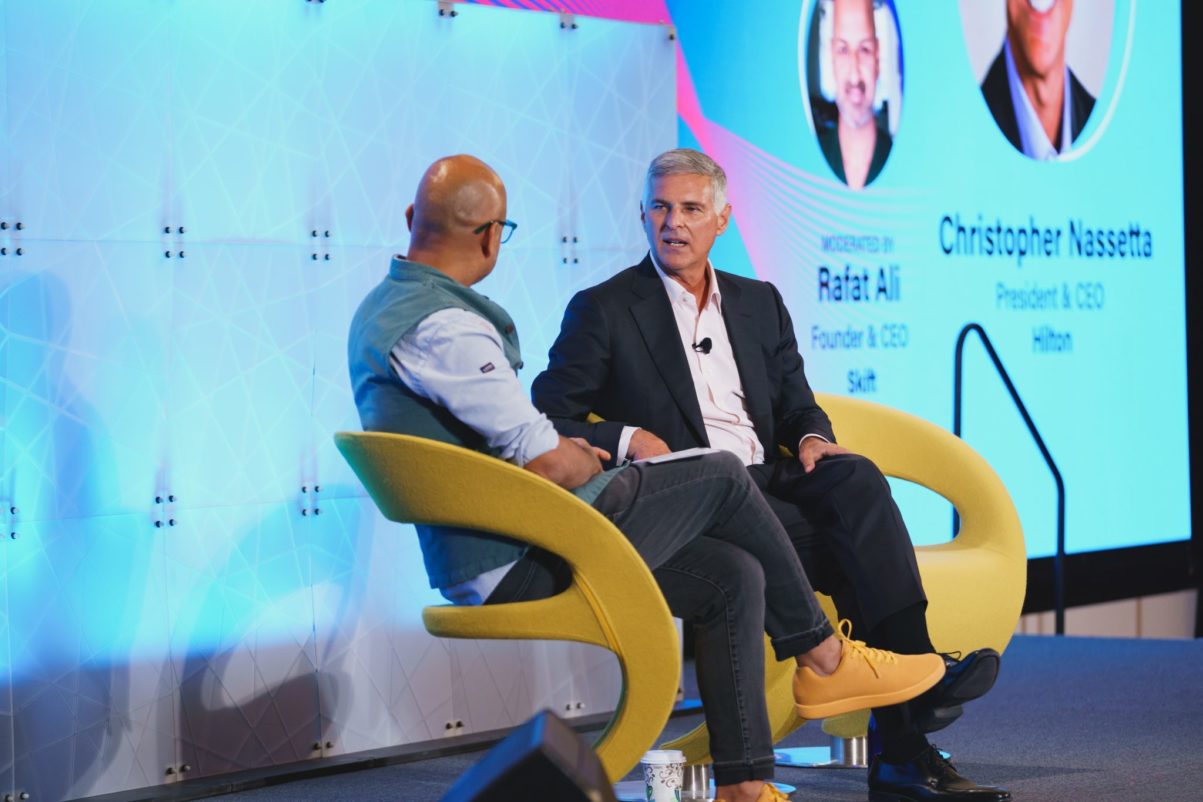Travel
Hotel CEOs Say Demographics Is the Future of Travel

Skift Take
From a rising middle class to an aging population, the most powerful leaders in hospitality agree demographics are key.
Yes, AI is going to be everywhere one day, and yes, lifestyle hotels are the hot new thing. But if you want to track the future of travel, the answer lies in demographics.
A “bulging” middle class, an aging population, and a global shift eastwards are among the most powerful forces in the industry, according to recent comments from global hotel CEOs at IHG, Accor, Hilton, and Marriott.
Hilton CEO Chris Nassetta, at a conference in Saudi Arabia last week, said responding to demographic shifts would help usher in a new era of growth. “My own view is we’re at the beginning of a golden age of travel,” he said. “Three things are driving that. One is demographics: We’re going to have over five billion in the middle class by 2030. Middle-class growth is huge.”
“When you wake up in 20 years and you look at the growth in the industry, the bulk of the growth will be in the mid-market. Why? Demographics. The middle class is the bulge bracket that will drive travel demand.”
Hilton, like all of its competitors, has hotel brands ranging from budget-level with the likes of Garden Inn and newcomer Spark, to luxury flags such as Waldorf Astoria and Conrad.
At Skift Global Forum last year, Nassetta said that while Spark isn’t “the sexiest” brand in Hilton’s line-up, it does present some of the strongest growth opportunities thanks to the middle class.
Skift CEO and founder Rafat Ali put demographics top of the list last year in a piece on the future of travel. And we’ve identified a Megatrend around how travel is responding to demographic shifts.
Focus on the Middle Class
Also speaking in Riyadh, Marriott CEO Anthony Capuano agreed hotel operators must focus on travelers of all income levels.
“All of us are seeing the bifurcation of the consumer. We’re seeing high-income households travel at the upscale end, and the lower-income households also have an appetite to travel. That’s why we’ve all built portfolios across multiple price points. The pandemic created a bit of a pause, but we’re all talking about an explosion of the middle class.”
Capuano said this laser focus on the middle class isn’t just “intuition,” it is driven by piles of consumer data Marriott and other operators gather from users spending with their branded credit cards.
He added: “That’s not our intuition, all of us have big branded credit card platforms so we have terrific data on consumer spending real-time. That appetite to prioritize travel and experiences is across demographics.”
Go Local First
Accor’s chairman and CEO Sebastien Bazin said that luxury hotels should enter a destination later in their lifespan, with economy and mid-scale being where the real business happens, and be there to serve the local demography.
Bazin said on stage: “We have to understand that travel starts domestically. We all get confused thinking about [travel to] other continents. But 70% of travel in terms of volume is domestic. It will be in the GCC as well. 80% of the business.”
“That’s why it’s been so easy to read. It started with America 50 years ago, then Europe 40 years ago, then China for the last 25 years. Then India for the next 20 years. It’s all about demography, emerging middle class, and local populations.”
“Luxury is at the end of the journey.”
An Aging Population
On the same stage, IHG CEO Elie Maalouf looked at a different rising demography: The older generations. He said: “It’s predominant in North America, Europe and China – the aging of the population. There’s a wave of retirees who are healthier and wealthier than any generation before them. One of the top things they want to do is travel.”
“They want to experience the world. They want to spend their money. Go first class or their kids will. Demographics… travel is moving east. You need to be strategic. You can delude yourself you can hold share by doing nothing.”
The Younger Generation
The younger generation is also crucial. Accor’s Bazin said these travelers are the ones to listen to and winning their favor is the new “name of the game.” He also said their travel habits will demand developers to better address overtourism.
“The new generation may go to remote places way before they go to the likes of Venice and Barcelona. The name of the game, those between 20 and 30 years old, you need to listen to them.”
IHG’s Maalouf added: “I don’t think there’s an overtourism problem, there is an overconcentration of tourism in a few key places. We need to work with governments to distribute travelers differently.”








